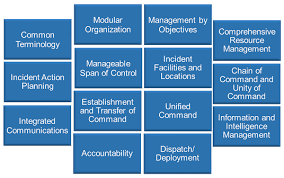What Nims Management Characteristic Are You Supporting

Welcome to What Nims Management Characteristic Are You Supporting the world of emergency management! In any disaster or crisis situation, it is imperative to have a well-coordinated response team. The National Incident Management System (NIMS) provides an integrated framework for effective communication and collaboration between different agencies involved in managing an incident. Each NIMS management characteristic plays a vital role in ensuring successful incident management, but which one are you supporting? Join us as we explore the characteristics and find out which one resonates with you the most!
What is Nims Management?
There are nine characteristics of successful Nims management teams:
1. Nimble – The ability to rapidly respond to change and adapt to new situations is critical for any organization, but especially important for small businesses.
2. Innovative – A successful Nims management team is always looking for new ways to improve their products or services. They’re not afraid to take risks and experiment with new ideas.
3. Motivated – A good Nims management team is driven by a shared vision and passion for their work. They’re constantly striving to improve and make things better.
4. Organized – A well-organized team is essential for any business, but particularly important for small businesses where every member needs to be aware of what’s going on at all times.
5. Communicative – Good communication is key for any team, but especially important for Nims management teams where members need to be able to quickly share information and give updates on progress.
6. collaborative – A successful Nims management team knows how to work together towards a common goal. They respect each other’s skills and expertise and are willing to compromise when necessary.
7. Flexible – The best Nims management teams are flexible and can easily adapt to changes in the market or in the company’s direction. They’re also open to new ideas and willing to try out different approaches.
8 . Passionate – A great Nims management team cares deeply about their work
The different types of Nims Management styles
There are four different types of management styles that can be used when working with the Nims system. These styles are:
1. The command and control style
2. The collaborative style
3. The laissez-faire style
4. The autocratic style
Each of these styles has its own advantages and disadvantages, so it is important to choose the right one for the situation at hand. Let’s take a closer look at each of these styles:
1. The command and control style is the most traditional and well-known management style. In this style, the manager is in charge and makes all of the decisions. This can be effective in some situations, but it can also lead to problems if the manager is not well-informed or if there are disagreements among team members.
2. The collaborative style is more participatory and involves input from all team members. This can be a very effective way to manage if everyone is on board with the plan and agrees on the goals. However, it can also lead to confusion and frustration if team members do not feel like their voices are being heard or if there are conflicting ideas about what should be done.
3. The laissez-faire style is a hands-off approach where the manager generally does not get involved in day-to-day decision making. This can work well if the team is self-motivated and cohesive, but it can also lead to problems if
Which Nims Management style are you supporting?
The National Incident Management System (NIMS) provides a systematic, proactive approach to guide agencies and organizations in preparing for, responding to, and recovering from incidents. NIMS also establishes a common framework and terminology for incident management.
There are five primary NIMS Management Characteristics:
1. Command and Coordination
2. Communications and Information Management
3. Resource Management
4. Safety and Security
5. Intelligence and Investigation
Each of these characteristics is important in its own right, but together they provide a comprehensive approach to incident management. Which NIMS Management Characteristic are you supporting?
How to support your chosen management style
There are many different management styles out there, and each one has its own unique set of characteristics. If you’re in a position of management, it’s important to understand the different management styles and how to support them. Here’s a look at some of the most common management styles and how to support each one:
Authoritarian: This type of manager is very hands-on and likes to be in control of everything. If you’re supporting an authoritarian manager, it’s important to be available when they need you and to follow their instructions closely. They may not be the most open to feedback, but it’s still important to offer your suggestions and help them troubleshoot problems.
Laissez-faire: This type of manager is much more relaxed and hands-off than an authoritarian manager. If you’re supporting a laissez-faire manager, it’s important to give them space to work and not be too pushy with suggestions or help. They’ll likely appreciate your input, but they may not always take your advice.
Democratic: This type of manager likes to involve everyone in the decision-making process. If you’re supporting a democratic manager, it’s important to be vocal about your opinions and share your ideas freely. They’ll value your input and consider your ideas when making decisions.
Transformational: This type of manager is always looking for ways to improve and grow their team. If you’re supporting a transformational manager, it
Conclusion
NIMS management is a valuable asset for any organization look to maintain a safe and secure workplace. By becoming familiar with each of the five core characteristics, you can determine which ones are most important for your team or organization and support them in the best way possible. Through this process, you can build an effective emergency response system and prepare yourself for whatever challenges may come your way.


![[silent war] taming a tsundere](https://newsipedia.com/wp-content/uploads/2024/04/download-20-1.jpeg)

